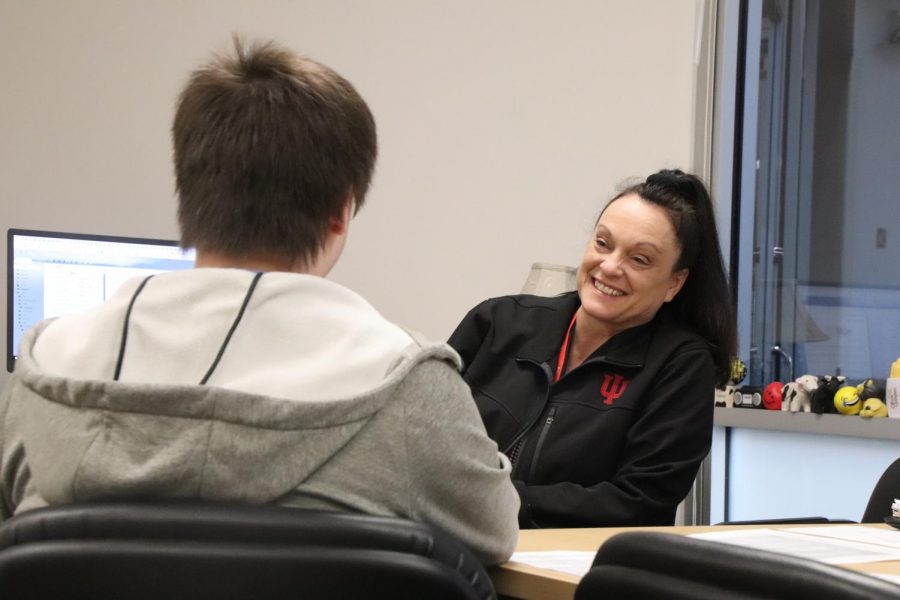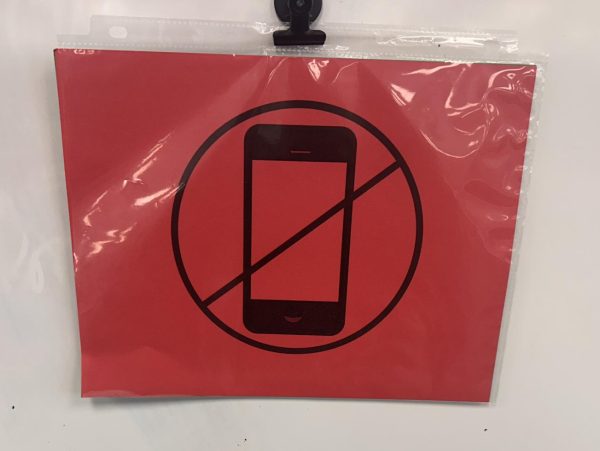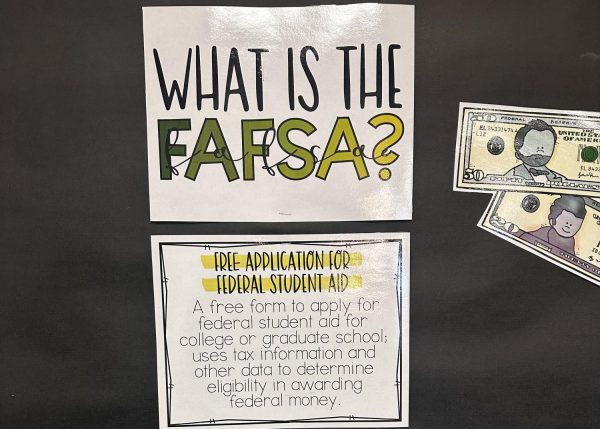Pathways to success
This year’s freshman class is the first to be affected by Indiana’s new graduation requirements
Counseling director Julie Fierce meets with a student on Feb. 20. Counselors in the Guidance Office meet with students to help them pick the pathway best tailored for their goals.
Classes before 2023 had to pass the state standardized test and get good enough grades to pass in a four year time. There were three different types of diplomas, with increasing difficulty. The Core 40, Core 40 with Technical Honors and Academic Honors diploma.
The freshman class of 2023 has a new addition to their graduation plan called Graduation Pathways, which provides a new way for students to graduate without having to do some other elements found in the old graduation plan.
This year’s freshman class is the first to be affected by the recently introduced Graduation Pathways. There are varying opinions about how their and future students’ high-school careers will be impacted.
“This will benefit our kids by giving them the opportunity to take a class that they may be interested in,” counseling director Julie Fierce said.
The Graduation Pathway requires students to not only have a diploma but also to be a part of a club or C-9 and get a certain score on the ACT and SAT. But if a student isn’t the best test-taker, they can take a Career and Technical Education (CTE) Concentrator in place for the SAT and ACT. This is a program where students would need to take two to three classes in a certain category. Examples of such categories are Education and Training, STEM/Information Technology and Business and Marketing.
There is controversy surrounding this new CTE Concentrator mainly because there aren’t enough categories that can help with the diverse selection of jobs, according to Fierce. If a student doesn’t like the category they are trying to complete, it is hard to switch out and change categories, so they have to stick with it.
“The state said ‘You could only follow these pathways, that’s it,’” Fierce said. “Which if you want to be a lawyer, there’s nothing on here you could take to be a lawyer. If you want to be a veterinarian, there’s nothing on here to be a veterinarian.”
Freshman Sarah Paris believes that this aspect of Graduation Pathways isn’t fair because if a student isn’t a great test taker, the student’s entire schedule is changed because of these new CTE classes.
“It’s kind of stressful because high school is all about finding certain classes that you really like or that would best fit into your future college plan or career,” Paris said. “So I think it should be more open and lenient so that way people don’t have to join clubs or sports that they might not be interested in.”
Freshman Anna Black, on the other hand, thinks that it is fair but agrees with Paris about not being happy with forcing students to join a club or sport.
“I think it’s pretty fair,” Black said.“The athletics and clubs part, I don’t think that is necessary. But everything else is pretty much fair.”
Students like Paris may find this stressful and complicated. Guidance counselors, though, don’t think they need to worry too much about Graduation Pathways.
“It sounds complicated,” Fierce said. “Honestly, it’s a lot more tracking for us. But it’s not something we want the schools or the kids to really worry about.”

Hi! Welcome to Chili’s or my bio whatever you prefer. My name is Shelby Reeves, I’m a senior and a News Reporter here on The Journal. When people first...







